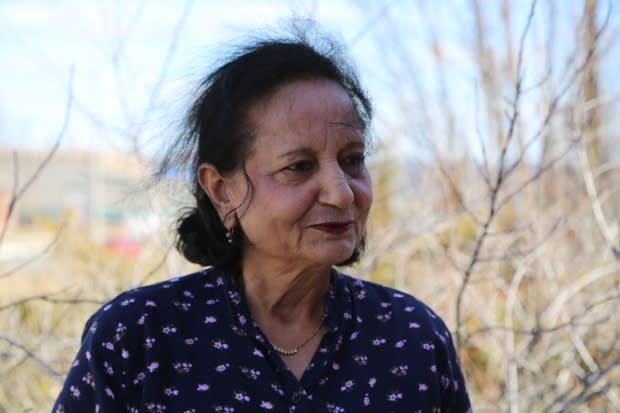Asian Heritage Society wants to tell immigrants' stories
Madhu Verma was only five or six years old when she left her home as a refugee in what is now Pakistan.
"We were Hindu, so we had to leave the place to save our lives," she recalled.
Her family settled in North India, where they were met with discrimination because of the language they spoke and the clothing they wore. In 1956 they moved again because resentment and hatred had grown too dangerous.
In 1962 she moved to Chicago to be married. Her brother and her fiancé were both completing their doctorate studies at Chicago University.
A year later, Verma and her husband moved to Fredericton after he was offered a teaching position in the physics department at the University of New Brunswick.
"When we came, I think we were the second family from India … I remember the first time I just wore my sari and walking here in downtown and some people came out of the shop to see me, 'Who is this stranger here?'" Verma said.
Booklet of stories
Verma said the first questions anybody would ask her were "Why are you here?" and "When are you going back?"
She didn't know how to reply to either of those questions, but it wasn't until she had her first child in 1964 that she started thinking, "How are my children going to answer this question?"
"And that's where I started my work," Verma said.
More than 40 years later, Verma is working to collect stories from newcomers about their experiences moving to a new country and new culture.
The project is for Asian Heritage Month in May, but Verma said it is open to immigrants from any part of the world.
Newcomers who've been in the province for less than four years are asked to describe their integration experience in 500 words.
The stories will be combined with photos into a booklet. Submissions can be sent to the Asian Heritage Society by email to felisa@ahsnb.org by April 25.
The opening ceremony for Asian Heritage Month will be May 7, from 12 to 2 p.m. at the Beaverbrook Art Gallery.
'I can see the difference now'
When Verma first arrived, there weren't many Asian families in Fredericton. But there were students from Asia studying at the universities. She started to integrate with the cultural programs that were starting in UNB. She would play the sitar and participate in dances.
In the 70s, she became a founding member of both the Asian Heritage Society of New Brunswick and the Multicultural Association of Fredericton.
"As the population grew, there was a need to form one organization," she said.
Around the same time, Prime Minister Pierre Trudeau announced Canada would adopt a multicultural policy.
"It opened the door to us to share our culture, share our values, share our art," said Verma.

But it was still a challenge, and Verma said she and her family were the victims of racism.
"Sometimes people would say 'paki go back,' things like that. I didn't understand," she said. "Eggs were thrown at our windows."
Landlords would even refuse to rent to her husband or to international students looking for a place to live, saying a place had just been rented when they went to look at it.
But Verma said things have changed.
There are settlement support programs for newcomers now that didn't exist when Verma and her family were adjusting to Canadian society. She is curious to hear about other people's experiences, and to find out what gaps still might exist in making the transition easier for immigrants.
"I can see the difference now," she said. "People are welcoming them."

